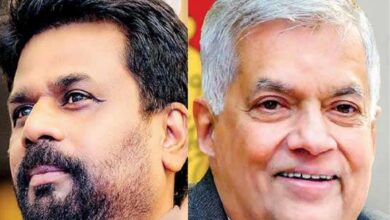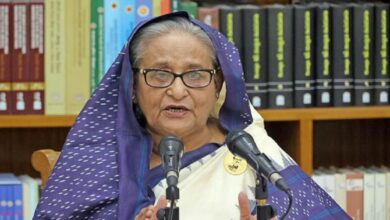The Urgent Need of Decolonisation in South Asia
Imagine if South Asia were a character in a British comedy—let’s say, Noren, the perfectly polite butler who serves with grace and efficiency while everyone else has all the fun. The truth is, after centuries of colonialism and decades of navigating the slick waters of global capitalism, South Asia has been the world’s butler for far too long. It’s the polite, diligent servant named Noren of multinational corporations and international financial institutions, always opening the door for someone else’s profits to come waltzing in. It’s time for the region to put down the tray, stop saying “Yes, sir” to the neocolonial bosses, and finally take centre stage at its own party.
Let’s take a stroll down memory lane (just for a moment, I promise) to understand why this region needs another decolonisation movement, and this time, it needs to be more thorough. British colonialism was a classic setup—think of it as a dinner party where the British turned up, ate all the best food, and left the locals with the bill and the dishes. They transformed South Asia into a factory, exporting raw materials and importing expensive British goods in return. After independence, South Asia had this brief moment of standing in front of the mirror, flexing its muscles, and saying, “Right, we’ve got this.” But then along came the suave 20th-century brigade—IMF officials in sharp suits, multinational CEOs with shiny contracts, and diplomatic “advisors” (whatever that means)—all with new ideas for how to keep the show going. The only difference? This time, the profits were dressed up as “foreign direct investment,” and the new policies were labelled “modernisation.”
So, why does South Asia need to decolonise itself again? Why can’t the region just enjoy its new role as the world’s “favourite low-cost labour source like the butler Noren”? Well, that’s because it’s not all that fun for Noren. The truth is, the legacy of colonialism is alive and kicking, and it’s been recycled into a brand-new economic, political, cultural, and psychological costume. Let’s have a chat about how South Asia can finally rip off that outfit, get rid of the old colonial and neocolonial habits, and finally run its own show.
First off, let’s talk money—or rather, why South Asia isn’t making enough of it. Thanks to British colonialism, the region was stuck with an economy designed to export cheap resources and import expensive products. And it seems not much has changed. These days, multinational corporations, many of them American, stroll in and set up shop in South Asia’s backyard. They love the cheap labour, of course, but they’re not exactly paying rent. Factories pop up everywhere—making T-shirts, smartphones, and just about everything in between—while the profits zip off to some corporate headquarters in New York or London. It’s like inviting your friends over for a potluck, only they show up with empty hands, eat everything, and leave you with the dishes.
And the worst part? Governments keep chasing these so-called “foreign investments” like they’re winning lottery tickets. But here’s the hard truth: it’s not foreign investment; it’s foreign exploitation. The solution, then, is for South Asia to stop being the global factory floor and start building industries that serve local needs first, exports later. We’re talking about investing in local businesses, supporting sustainable industries, and (brace yourself) maybe even nationalising key sectors if the economy is being looted. Shocking, I know, but when your house is on fire, sometimes you need more than a bucket of water.
Now, let’s talk politics. Colonialism left behind a shiny, centralised bureaucracy that the British designed to keep things in line, and instead of smashing it to bits, post-independence leaders simply took over the controls. The centralisation, the authoritarian tendencies, and the deep-seated love of bureaucratic red tape—it’s all still there. And if that wasn’t enough, the region found itself caught up in Cold War politics, becoming a playground for superpowers. Pakistan, for instance, became America’s BFF during the Cold War, earning itself lots of military aid, and all it had to do was follow Washington’s lead like an obedient sidekick. Meanwhile, India—trying to avoid the drama—ended up balancing itself between non-alignment and its own economic struggles, only to be pushed into liberalisation policies when the IMF came knocking in 1991.
If South Asia wants to decolonise politically, it’s time to stop being everyone else’s wingman. It needs to break free from the need for Western approval and build its own alliances—preferably ones that aren’t just about trade deals and cricket rivalries. The idea of a South Asian Union that actually does something (other than holding annual meetings and discussing which country makes the best chai) could be a great start. Strengthening democratic institutions and decentralising power so that it reflects the needs of real people rather than external interests—that would be revolutionary. Maybe then, the region could finally stop playing second fiddle to whichever superpower shows up with the biggest cheque.
But hold on, the decolonisation project isn’t complete yet. Culture is where the colonial hangover is most stubborn. British colonialism didn’t just set up an economy; it set up a mindset. English was—and still is—seen as the passport to success. The colonial schools produced a class of “Babus” who acted as intermediaries, and while the colonial power may have left, the mindset stuck around. Today, if you want to climb the social ladder, you’d better be able to quote and speak perfect English, because the colonial habit of viewing Western norms as superior has become deeply embedded. And let’s not even start on the influence of Hollywood, McDonald’s, Facebook, YouTube, X and Instagram—modern missionaries that have convinced generations of South Asians that the best way to be “modern” is to consume Western content, wear Western clothes, and sip on Western drinks. The region is in the middle of a cultural identity crisis, and the only solution being offered is a Happy Meal.
To decolonise culturally, South Asia must reclaim its own identity. It’s time for the region to realise that its own languages, arts, and traditions aren’t relics of the past but rather, vibrant aspects of its present. Film industries like Bollywood and Tollywood should make films that showcase South Asian stories, not just Western-style action flicks with a few dance sequences. Education systems need to prioritise local languages and knowledge, reminding students that their history and literature are just as valuable as any Western curriculum. And yes, wearing a lungi, dhoti or a shari is perfectly modern—it’s not a costume; it’s a choice.
Of course, the hardest battle will be the psychological one. Colonialism didn’t just take resources; it colonised minds, leaving a legacy where anything foreign seems better. The top universities? They’re all in the West. The coolest brands? Western, of course. And success? Well, that’s measured by how well you can blend into Western society. This colonial mentality needs a serious overhaul. South Asia needs to stop looking to the West for approval and start valuing its own achievements. Progress doesn’t mean Westernisation; it means developing on your own terms. It’s about supporting local innovations, celebrating local successes, and building an economy that’s independent of the West’s approval.
Decolonisation isn’t just about kicking out the old colonial powers; it’s about kicking out the mindset that they left behind. It’s about rejecting the role of Noren-the butler, refusing to wait hand and foot on multinational corporations and global superpowers, and deciding to be the host of the party instead. It’s time for South Asia to stop being everyone else’s economic sidekick and start running the show. Imagine a South Asia where industries are owned locally, politics serve the people (not foreign interests), and culture celebrates local identities instead of mimicking Western lifestyles.
The path to decolonisation may not be easy, but it’s necessary. It’s high time the region stopped standing in the shadows and decided that enough is enough. South Asia should no longer be the world’s favourite economic pet, trotting out its cheap labour and resources at everyone else’s convenience. Instead, it’s time for the region to become the architect of its future—confident, unapologetic, and independent. After all, it’s about time South Asia stopped hosting everyone else’s party and started throwing its own.
———
Rajeev Ahmed
The Editor of Geopolits.com and the Author of the book titled Bengal Nexus





